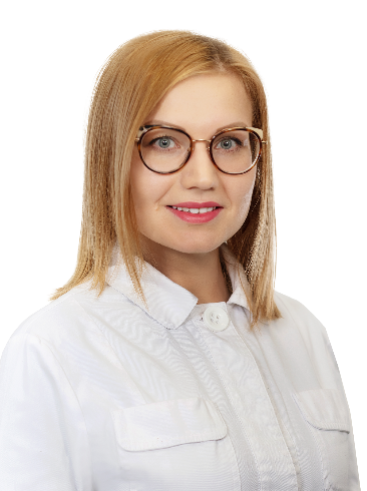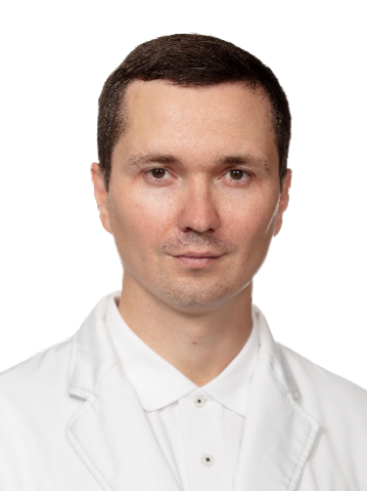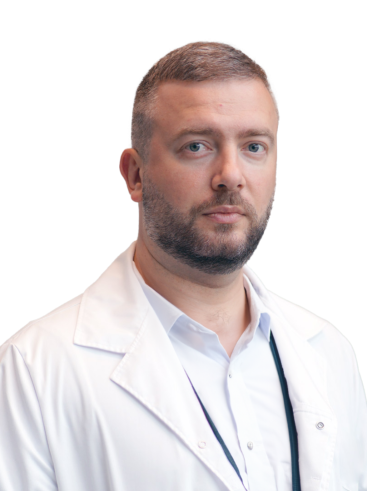Proctology

What is Proctology?
Proctology is a branch of medicine that deals with the diagnosis and treatment of diseases of the rectum, anal canal, and surrounding tissues. It helps manage both acute and chronic problems that can be not only physically but also emotionally distressing.
Who is a Proctologist?
A proctologist is a specialist doctor who examines and treats various conditions of the rectum and anus. The doctor performs diagnostic examinations (for example, rectoscopy), prescribes treatment, and, if necessary, carries out surgical procedures. A proctologist not only treats but also helps prevent recurrence of diseases by providing advice on diet, hygiene, and lifestyle.
How Does a Proctologist Treat?
Treatment is individualized and depends on the specific diagnosis. A proctologist may prescribe:
- Medication therapy (anti-inflammatory, pain-relieving, or vascular-strengthening medicines);
- Minimally invasive procedures (for example, hemorrhoid sclerotherapy or rubber band ligation);
- Surgical treatment, if necessary;
- Lifestyle and dietary adjustments to prevent symptom recurrence.
How to Prepare for a Visit to a Proctologist?
- It is recommended to empty the bowels beforehand — mild laxatives or a micro enema can help ensure a more accurate examination.
- Avoid heavy meals the day before the appointment.
- Bring any previous test results, if available (for example, colonoscopy or ultrasound findings).
There is no need to feel embarrassed or anxious — a proctologist is a professional who works delicately and with understanding.
When Should You Not Delay Seeing a Proctologist?
You should make an appointment without delay if you notice:
- Blood in your stool or on toilet paper;
- Pain, burning, or itching in the anal area;
- Persistent constipation or diarrhea;
- A sensation of a foreign body in the rectum;
- A lump or swelling around the anus.
Early diagnosis significantly reduces the risk of complications and ensures more effective treatment.
The Most Common Proctological Diseases
- Hemorrhoids — dilated veins in the rectal area causing pain, itching, and bleeding;
- Anal fissures — small tears in the mucosa that cause severe pain;
- Perianal abscesses and fistulas — inflammatory processes around the anus;
- Rectal inflammations (proctitis, paraproctitis);
- Benign and malignant growths (polyps, tumors).
Prevention and a Healthy Lifestyle
To prevent proctological diseases, it is recommended to:
- Maintain a balanced diet rich in fiber;
- Drink plenty of water;
- Avoid prolonged sitting;
- Undergo regular preventive examinations.
Specialists
Prices
Prices of proctology services
Primary consultation of a proctologist
55.00 €
Proctoscopy with a disposable proctoscope
25.00 €
Rectoscopy with a disposable tip
39.00 €
Transanal biopsy
21.00 €
Rectal tamponade
21.00 €
Spongostan anal tampon for rectal tamponade
10.00 €
Digital sphincter buzzing
13.00 €
Dilatation of the sphincter with a rectal speculum
37.00 €
Transanal polypectomy
350.00 €
Electroablation of anal warts
330.00 €
Anal fissure excision or sphincterotomy
390.00 €
Surgery for external hemorrhoids
390.00 €
Operation of internal hemorrhoids with a mechanical suture (Longo op.)
475.00 €
Surgery of internal and external hemorrhoids
540.00 €
Surgery of internal hemorrhoids with the THD method
400.00 €
Surgery and mucopexy of internal hemorrhoidal nodes with the THD method
400.00 €
Premium for using the THD operations suite on THD operations
230.00 €
Premium for the use of a mechanical suturer in hemorrhoid operations
430.00 €
Premium for use of disposable hemorrhoid ligature for hemorrhoid surgery
23.00 €
Superficial paraproctitis incision
47.00 €
Incision or excision of an isolated thrombosed or inflamed external hemorrhoidal nodule
75.00 €
Sclerotization in hemorrhoids
70.00 €
Infiltration anesthesia in proctology
30.00 €
Perisacral and perianal blockade
45.00-60.00 €
Topical anaesthesia in proctology
30.00 €
Application of latex rings of internal hemorrhoids
117.00 €
Repeated consultation of a proctologist
45.00 €
Premium for complications in proctological operations
150.00-300.00 €
Excision of rectal fistula
590.00 €
Hemorrhoid laser surgery
710.00 €
Treatment of grade I; II internal hemorrhoids with the HET system
570.00 €
Transanal resection of the rectum with 2 circular sutures (STARR-I operation)
750.00 €
Botulinum toxin injection for anal fissure
140.00 €
Surcharge for the use of a disposable proctoscope for other manipulations
19.00 €
Surcharge for the use of the HAL-RAL operating suite for proctological operations
250.00 €
RAFAELO hemorrhoids radiofrequency procedure
680.00 €
Combined treatment of complicated hemorrhoids and/or rectal disease
1200.00 €
Examination of the rectum using a disposable rectoscope with an autonomous light source
37.00 €
Closure of hemorrhoids with cyanoacrylate glue
690.00 €
Preoperative preparation of the patient
29.00 €
LIFT operation
680.00 €
Fistulas Seton drainage
130.00 €
Consultation of a highly qualified (Prof. Dr. habil. med.) proctologist
65.00 €
TRREMS (longo and rectocele) surgery
960.00 €
FISTURA operation
475.00 €
Surcharge for the use of a disposable catheter for FISTURA surgery
260.00 €
Piemaksa par augsti kvalificēta speciālista konsultācijām
0.00 €
Premium for manipulations performed by a highly qualified specialist
100.00-500.00 €
Supplement for operations performed by a highly qualified specialist
0.00 €




